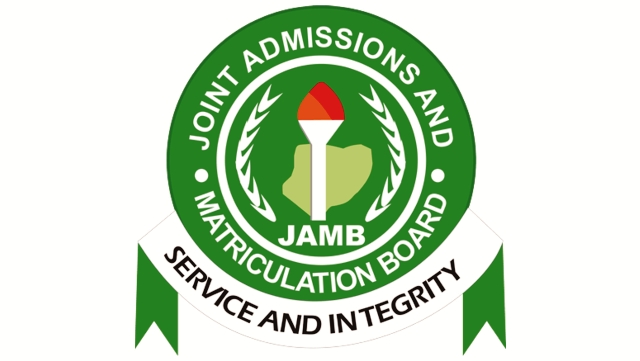News
Health Ministry Not For Doctors Alone – Medical Scientists
Mr Manason Rubainu, President, Association of Medical Laboratory Scientists of Nigeria (AMLSN) has said the post of the minister of health should not be restricted to medical doctor’s. Rubainu made the suggestion while speaking with newsmen in Abuja on Sunday. He said the call made by the Nigerian Medical Association (NMA) for a minister of health to be a medical doctor was unfortunate.
He said the call was unnecessary and could not serve any useful purpose to the health sector.
“It serves as a parochial interest which makes the ministry of health less useful to the people. “NMA does not understand that the ministry of health is an institution of the society and one of the political structures of governance that provides service to the citizenry.
“It is not an avenue for a professional group that will hold the country to ransom in fulfillment of self ego,’’ he said. Rubainu said the appointment of a minister of health was beyond being a Professor of medicine but one with the expertise. He said any discipline could produce a minister for health. He said Prof. Eyitayo Lambo was not a medical doctor but he brought his wealth of experience, while in the office, to bear on the ministry.
“All the skills and knowledge exhibited by Prof. Lambo that was brought to bear on the functions and operations of the ministry of health cannot be learnt in the medical school.
“What the country needs is a person with passion for health of the community and who can utilise the socio-economic resources to make the ministry responsive to perform its functions,’’ he added.
News
NIMASA Shuts Two Lagos Terminals Over Security Breach

The Nigerian Maritime Administration and Safety Agency (NIMASA) has shut down ShellPlux and TMDK Terminals, both located in the Ijegun-Egba Area of Lagos, for violating the International Ship and Port Facility Security Code.
According to a statement by the Head of Public Relations at NIMASA, Osagie Edward, yesterday, the move was part of the agency’s role as the designated authority for implementing the ISPS Code in Nigeria.
The ISPS Code, an amendment to the SOLAS Convention, was developed by the International Maritime Organisation to enhance maritime and port security, particularly for facilities engaged in international trade.
Edward explained that the enforcement action follows, “Persistent non-compliance by the facilities with the provisions of the ISPS Code, despite several formal warnings.”
“The move aligns with global best practices and is by Section 79(f) of the ISPS Code Implementation Regulations (2014), which mandates the closure of any facility that remains in violation for over three calendar months,” Edward said.
Speaking on the development, the Director General of NIMASA, Dr. Dayo Mobereola, emphasised the agency’s commitment to safeguarding Nigeria’s maritime domain.
“In wielding the big stick, we acted only as a last resort. Our primary goal is to enforce safety and security practices across Nigerian ports and jetties. At a time when we are collaborating with the United States Coast Guard to lift the conditions of entry on vessels from Nigeria, we cannot afford lapses that jeopardise our progress,” Mobereola said.
He added that the facilities would be reopened once all compliance requirements are satisfactorily met.
Mobereola acknowledged their important role in service delivery and trade facilitation.
The NIMASA boss stressed that the Minister of Marine and Blue Economy, Mr. Adegboyega Oyetola, is committed to enhancing sustainable trade facilitation for the maritime sector in a safe and conducive environment.
News
Rivers Police Arrest Notorious Cultist, Recover Sophisticated Ammunition

The Rivers State Police Command said it has recovered one scorpion VZ61 submachine gun, fabricated English-made Beretta pistol, 20 rounds of 5.56mm live ammunition, two rounds of 9mm live ammunition and a pair of screwdriver (sunglasses) from a notorious cultist in the State.
The Police said the recovery was made following the arrest and confession of a 36-year-old suspect, Mr Diseye Ukulu, from Bayelsa State, who resides at No 25 Nnewi Street, Diobu, Port Harcourt.
The State Police Public Relations Officer, Grace Iringe-koko, who revealed this in a statement on Wednesday, explained that Ukulu was arrested over his alleged involvement in wreaking havoc in Diobu through cult activities.
The statement read in part: “In compliance with the directives of the Rivers State Commissioner of Police, Olugbenga A. Adepoju, to rid the State of criminal networks, the command has recorded a significant breakthrough with the arrest of Diseye Ukulu, a 36-year-old male from Bayelsa State, but resident at No 25 Nnewi Street, Diobu, Port Harcourt.
“On 9th of July, 2025, at about 18.20hrs, a combined team of Police operatives from the Special Operations and Intelligence Team (SOIT), Hawk Tactical Squad, and Anti-Cultism Unit (ACU), Port Harcourt, in collaboration with Diobu local vigilante group members, apprehended the suspect.
“The operation was intelligence-driven, focusing on inter-confraternity rivalries between the D12 and BS secret cult groups, both affiliated with the notorious and dreaded Deygbam cult group, which has been linked to recent gruesome killings in the Diobu axis of Port- Harcourt.
“Following Ukulu’s confession, the operatives swiftly mobilized to the residence of Achionu Solomon Chukwuma, ‘m’ aka Solex and recovered exhibits: All exhibits were concealed in a black bag.”
Irinke-Koko noted that the suspect and exhibits were in the Police custody, even as she assured that a thorough and discreet investigation was ongoing, and that efforts were being made to apprehend other members of the cult group.
Meanwhile, the Police commissioner has reaffirmed the command’s commitment to bringing all perpetrators of crime in the State to justice, urging residents of the state to provide useful and timely information to the Police to enable them make more exploits.
Enoch Epelle
News
Nigeria’s Inflation Rate Dropped To 22.22% In June -NBS
The headline inflation for June 2025 moderated to 22.22 per cent relative to the May 2025 headline inflation rate of 22.97 per cent, report by the National Bureau of Statistics (NBS) has shown
According to the latest Consumer Price Index report released by the Bureau, the year-on-year figure reflects a 0.75 percentage point decline from the previous month and a significant 11.97 percentage point drop when compared to June 2024, which recorded an inflation rate of 34.19 per cent.
The decline in annual inflation is being recorded against the backdrop of a rebased index, with 2024 as the new base year.
On a month-on-month basis, however, inflation rose slightly to 1.68 per cent in June, compared to 1.53 per cent in May, suggesting that while the pace of price increases is slowing on an annual basis, prices are still rising faster from one month to the next.
The CPI rose from 121.4 in May to 123.4 in June, indicating persistent price pressures, especially in food, transport, and housing.
The NBS report read, “The Consumer Price Index rose to 123.4 in June 2025, reflecting a 2.0-point increase from the preceding month (121.4). In June 2025, the Headline inflation rate eased to 22.22 per cent relative to the May 2025 headline inflation rate of 22.97 per cent. Looking at the movement, the June 2025 Headline inflation rate showed a decrease of 0.75 per cent compared to the May 2025 Headline inflation rate.
“On a year-on-year basis, the Headline inflation rate was 11.97 per cent lower than the rate recorded in June 2024 (34.19 per cent). This shows that the Headline inflation rate (year-on-year basis) decreased in June 2025 compared to the same month in the preceding year (i.e., June 2024), though with a different base year, November 2009 = 100.”
The food inflation rate stood at 21.97 per cent year-on-year in June, a sharp drop from 40.87 per cent recorded in June 2024.
This significant fall is attributed largely to the base year effect. On a month-on-month basis, food inflation rose to 3.25 per cent in June, up from 2.19 per cent in May, driven by price increases in staples such as tomatoes, pepper, dried green peas, crayfish, shrimps, meat, plantain flour, and ground pepper.
The average annual rate of food inflation for the twelve-month period ending June 2025 stood at 28.28 per cent, down by 7.02 percentage points from the 35.3 per cent recorded over a similar period last year.
Core inflation, which excludes volatile items such as agricultural produce and energy, declined year-on-year to 22.76 per cent in June 2025 from 27.4 per cent in June 2024.
On a month-on-month basis, however, core inflation increased to 2.46 per cent, up from 1.10 per cent in May, reflecting renewed pressures in non-food components.
The average twelve-month inflation rate for core items stood at 24.14 per cent in June 2025, slightly higher than the 24.01 per cent recorded in the corresponding period of 2024.
The report showed a divergence in inflation trends between urban and rural areas.
Urban inflation dropped to 22.72 per cent year-on-year in June from 36.55 per cent in June 2024, while rising to 2.11 per cent month-on-month, from 1.40 per cent in May.
The twelve-month average for urban inflation also declined to 28.16 per cent.
Rural inflation followed a similar pattern, easing to 20.85 per cent year-on-year from 32.09 per cent, but slowing month-on-month to 0.63 per cent in June, from 1.83 per cent in May. The average annual rural inflation rate stood at 24.65 per cent.
In terms of state-level data, Borno recorded the highest year-on-year all-items inflation rate at 31.63 per cent, followed by Abuja at 26.79 per cent and Benue at 25.91 per cent.
The slowest increases were recorded in Zamfara at 9.90 per cent, Yobe at 13.51 per cent, and Sokoto at 15.78 per cent.
On a month-on-month basis, the sharpest increases were in Ekiti at 5.39 per cent, Delta at 5.15 per cent, and Lagos at 5.13 per cent, while Zamfara, Niger, and Plateau recorded declines of 6.89, 5.35, and 4.01 per cent, respectively.
Food inflation was most severe in Borno at 47.40 per cent year-on-year, followed by Ebonyi at 30.62 per cent and Bayelsa at 28.64 per cent.
Katsina, Adamawa, and Sokoto recorded the slowest food inflation at 6.21, 10.90, and 15.25 per cent, respectively.
On a month-on-month basis, food inflation rose fastest in Enugu at 11.90 per cent, Kwara at 9.97 per cent, and Rivers at 9.88 per cent, while Borno, Sokoto, and Bayelsa recorded declines of 7.63, 6.43, and 6.34 per cent, respectively.
The divisions contributing most significantly to the headline index were food and non-alcoholic beverages, restaurants and accommodation services, transport, housing, electricity, gas and other fuels, education, health, and clothing and footwear.
While the easing of inflation on a yearly basis may reflect improved stability in macroeconomic indicators, the rising monthly rates suggest that Nigerian households continue to face considerable cost-of-living pressures.
-
Opinion3 hours ago
Why Reduce Cut-Off Mark for C.O.E ?
-
Politics2 hours ago
Alleged Money Laundering: Fayose Has No Case To Answer, Court Tells EFCC
-
Rivers2 hours ago
CDS Urges Communities To Protect Pipelines
-
Politics3 hours ago
Atiku’s Exit No Problem To PDP – Makinde
-

 News2 hours ago
News2 hours agoJAMB Uncovers 9,469 Fake Admissions In 20 Tertiary Institutions
-

 News1 hour ago
News1 hour agoNAF Disowns Recruitment Adverts, Says It’s Fake
-
Rivers3 hours ago
Okrika Administrator Seeks To Connect Okujagu Ama To National Grid … Donates 30 Life Jackets To Okujagu Ama Boat Drivers
-
Politics2 hours ago
Natasha’s Counsel Writes Senate Over Court Judgment

